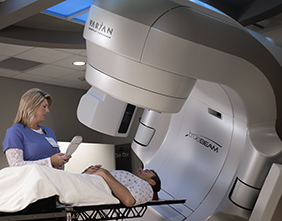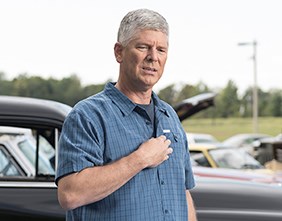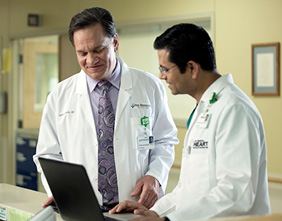The Aging Swallow
posted on: 8/23/2019 8:01:52 AM
The Aging Swallow
Jessica Lee, M.A., CCC-SLP

Old age is the most unexpected of all things that happen to a man. -Leon Trotsky
Recent data is showing that a little over one-eighth of the population is over the age of 65. As we age, we face new changes daily. The difficult challenge is to distinguish whether the changes are part of normal aging or something of concern. One of those changes can include your ability to swallow. When was the last time you thought about how you swallow? You probably haven’t unless something went wrong. This is your first red flag. If you find yourself thinking about your swallow consistently, it may be time to talk to your physician about seeing a speech-language pathologist, or SLP.
Here is a little background on your swallow. Your swallow is considered a reflex. Different muscles work together to bring food and liquid from your mouth to your stomach. The act of swallowing should take little to no effort. As we get older, it is natural for all of your muscles to weaken and slow down without the presence of illness. The same occurs with the muscles associated with your swallow. You may find that you are unconsciously changing the way you eat. You are starting to eat slower, taking smaller bites and drinks, avoid certain foods because they are harder to consume. All of these strategies are a normal part of aging and the term presbyphagia is used to describe this change in swallowing. Many people won’t realize they have had a change in function in their swallow until an illness or weakness occurs and the swallow changes from aged to impaired. The good news is that it is common for the swallow to return to “aged” once the weakness or illness resolves.
The big question is when you should seek help for your swallow. The answer is when you are using the strategies mentioned above and find that you are still having trouble. You will also want to seek help when your swallowing is affecting your quality of life. Are you losing weight without trying or because you are avoiding eating? Do you avoid dining out because you don’t want to guess what you will be able to swallow on the menu? Do you cough or choke when you eat and/or drink? Do you no longer find joy or comfort from eating certain foods? If you answered “yes” to any of these questions, you should seek help from a SLP. As speech-language pathologists, we are trained to determine when swallowing changes go from an aged swallow to an impaired swallow.
Dysphagia, or impaired swallowing, should always be evaluated by a speech-language pathologist to determine the best course of action. Your primary physician would refer you for an evaluation. At this visit, we would learn more about your medical history, your current function, and your goals for therapy. We will then perform an assessment in our office, or in radiology, to determine if dysphagia is present, what may be causing the dysphagia, and how we can address your symptoms in therapy. The therapy plan may include diet changes, changing the consistency of your food or drink, using exercises to improve function, or using compensatory strategies to aid in safe swallowing. SLPs come up with a plan that is unique to each person.
As you continue to navigate all that is “aging,” keep in mind that at Lima Memorial our goal is to serve you to enhance overall quality of life. We have several therapists at Lima Memorial Health System that can develop the perfect plan for you. For more information on how we can help, please call the Speech Therapy Department at 419-226-5070.
Website




